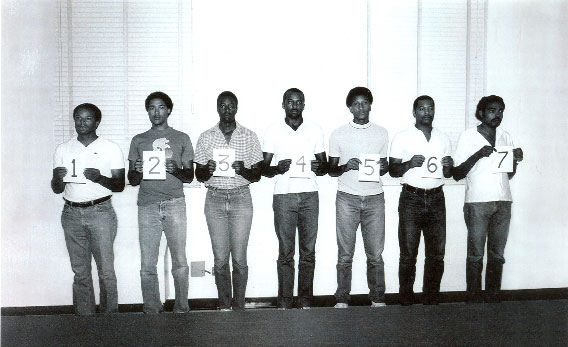1-The masks represented the loss of identity because they covered up the faces of each one of the children making them all the same due to the fact that the face of someone is a clear representation of identity and differentiation.
2-I think what the explanation for the scene is to show what this kid thinks about education, as it say “teachers, leave the kids alone”, showing how oppressed kids where at that time. And taking into account the riot, in my opinion what it tries to show is what is insides that kids mind, and, to put it in one way, what his dream is.
3- the movie portrays a really tough and strict education. Children are forced to do certain kinds of activities, punished and mocked for being creative
4-The main social institutions that appear in the movie are Family and the Army. First, the family of the main character, Pink, is small, since he is the only child, as well as the fact his father died in the WW2. When he talks about the mother it said that she will put all of his fear on you, which shows how bad family can make to someone. Second, the Army is show as weak, since it’s a scene in which it shows all the dead corpses in a trench, and if we take into account the people that oppress people in the last of the scenes as the army we can say that they are also oppressors.
5- in my opinion a education is the base of everything. If there is good education I'm sure crime rate's will be lower compared to somewhere with low educational standards. The song "another brick in the wall" may claim education is not necessary, but I consider that only some types of educational
strategy aren't needed. For example, the type that we see in the movie is completely unnecessary, we don't need teacher to tell us how to be or how to think; we don't need to be all the same or to be "just another brick in the wall". We are supposed to be more that that: creative, thoughtful, unique. We don't need an education that pushes us to be someone we are not, we need one that teaches us values and that lets us be who we are by guiding us to a bright future.
6- School is a place where children are supposed to learn and be taught how to behave; this is a necessary thing for society. However there ir a fine line between teaching and imposing knowledge. Teachers are supposed to give tools for children to express themselves, be creative and learn through that, also to create their own opinion on some matters. But sometimes information can be imposed on a child's mind, they are pushed to believe they have to be or behave on a specific way, maybe even pushed to stop being like themselves and start acting like others, sometimes education makes children stop thinking by their own and start repeating what they have been told, this is thought control.
I'm not saying education is not necessary, but it can be negative if it isn't managed correctly.
7- Soldiers are closely and strictly controlled: how to behave, how to think, who to support. This is what the double hammer symbol represents, soldiers that are mind-controlled just like students. We

see them on the "in the flesh" scene walking on a straight line, all the same and perfectly aligned, this shows how they are pushed to be in a certain way, like a perfect citizen that is just the same as the one next to him: there is no creativity nor imagination.
8- The metaphor describes how all children are “melt” and turned into the same thing, losing their individual identity and creativity at school. Moreover, it portrays how they are destined to become the same in order to help their country.
9- From our point of view the Wall is everything that sets you boundaries, that limits you. And even though it might have some good aspects, such as knowing what society says its good or not, it has more negative effects. You may disagree with society. Society might be completely wrong. Society might push you down. Sometimes you mustn't hear society at all, and it is there where innovation, vanguardism and many artists are born from.




